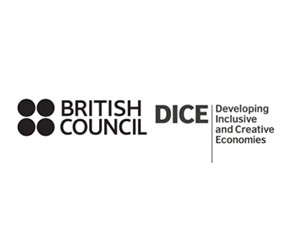The British Council’s Developing Inclusive and Creative Economies (DICE) initiative has selected 23 hub managers from South Africa, Mozambique and Botswana to take part in its connect.hubs 2.0 programme in South Africa.
The connect.hubs programme forms part of the Creative Hubs Academy, a joint learning programme by the British Council; global innovation foundation, Nesta; and international organisation for social change, Hivos.
The programme is aimed at leaders of collectives or creative hubs who service communities and promote change in the fields of creative, social and digital innovation. The 23 hub managers, who hail from hubs such as ARTitude Afrique (Botswana); Projecto Obuntos (Mozambique); Charismatic Rhythms (South Africa); 94Colours (South Africa) and Enkambini Creatives (South Africa), amongst others, will take part in a one-year transformational learning programme.
DICE Project Manager, Kate Gardner says participants are provided with a structured and supportive environment, which allows them to step back from their day-to-day work and gain new skills and insights to help them shape and grow their hubs. “Creative hubs – whether physical or virtual – are a part of a worldwide movement for creative and social entrepreneurs to connect and support one another while developing their businesses in a nurturing environment,” Gardner adds.
The connect.hubs programme is delivered in stages. At the core of the programme is a threeday capacity-building workshop. This is followed by a period of learning in action back at their hubs and then a two-day coaching retreat at the end of the programme. The process is concluded with participants applying for collaboration grants.
The planning and managing of all four stages of connect.hubs 2.0 South Africa will be delivered by a Johannesburg based creative hub, namely The Coloured Cube, in partnership with British Council.
The Coloured Cube will host creative and social hub managers from Mauritius, Botswana, Mozambique and South Africa; while Jubilee, a creative hub based in Malawi, will host creative and social hub managers from Namibia, Zambia, Zimbabwe and Malawi.
Executive Director of Jubilee Enterprise, Karen Chinkwita Kumakanga, says the creative economy fosters culture and creativity and contributes to income generation and selfemployment in an era where unemployment is high, especially amongst women and youth.
“Jubilee Enterprise Malawi would to thank the British Council, Nesta, Hivos and other partners for creating a platform to catalyse the development of creative hubs in the region as they are another building block of our economy,” she adds.
Managing Director of The Coloured Cube Mariapaola McGurk says her organisation is excited to be part of relevant and meaningful engagement between social and creative hubs of Southern Africa.
“Hubs are a contemporary response to the changing 'world of work', allowing microbusinesses to thrive and create connections and opportunities. They provide access to market, skills and entrepreneurial development and promote sustainability for creative, social and hybrid enterprises,” she notes.
The content for the three-day capacity-building workshop, which launches in November, will be delivered by Nesta UK Associate alongside selected local trainers, The Coloured Cube and British Council. Local trainers Mutsa Samuel Kejese from Zimbabwe and Belisa Rodrigues from South Africa will receive training from Nesta UK Associate Catherine Dotcherty, which will equip them with the necessary skills to co-deliver stage 2 and 3 of the connect.hubs programme.
Founder of UbuntuLab, Mutsa Samuel Kejese, says with Africa on the verge of change, there is a need for people to think and feel differently about themselves.
“Tapping into authentic African creativity and nurturing a solid viable eco-system is an approach I feel will contribute to making this a reality. The connect.hubs initiative is an exciting platform that brings various stakeholders in the creative economy and dares us to not only shift the African story, but add to the global one,” he says.






